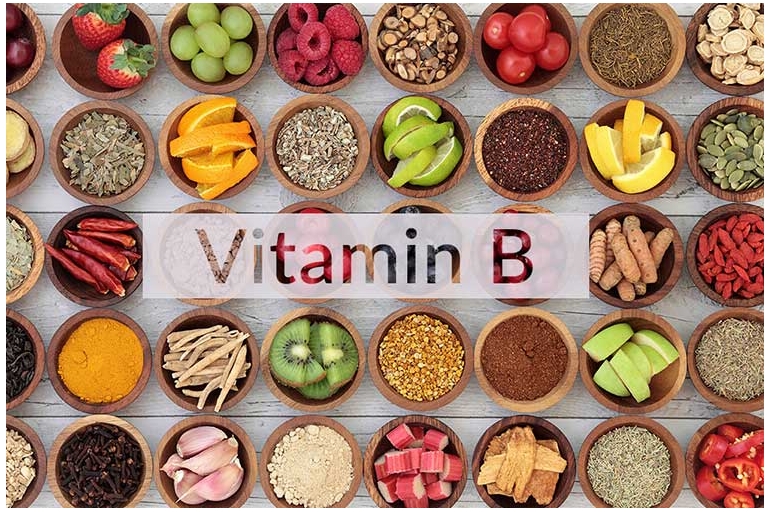Of all the vitamins the B vitamins may be the most intriguing. Their benefits and uses in the body are almost innumerable. Before we look at all the benefits of B vitamins let’s get familiar with what they are exactly.
The Basics
There are eight total B vitamins and they are water soluble in nature, as opposed to fat soluble. This means that, unlike fat soluble vitamins, they are not stored in the body and therefore need to be replenished at a much higher rate. A vitamins solubility does not determine how important it is in the body, it just gives us a little insight as to what happens once it enters the body.
The B Vitamins Include:
- B1 – Thiamine
- B2 – Riboflavin
- B3 – Niacin
- B5 – Pantothenic Acid
- B6 – Pyridoxine
- B7 – Biotin
- B9 – Folate
- B12 – Cobalamin
The Benefits
While there are many benefit to B vitamins there are a few primary ones that are worth focusing on.
- Lower Cholesterol – Bad cholesterol, LDL, has been proven to be lowered by Niacin (B3). This B vitamin is also one of the only ways outside of exercise to raise good cholesterol, HDL.
- Healthy Growth – Folate is best known for its work in fetal development in the form of folic acid, its synthetic form. Folate helps produce red blood cells, DNA, and promotes new cell growth.
- Immune Boosting – Thiamine and B6 both boost the immune system.
- Antioxidant Activity – Antioxidants are beneficial in removing free radicals from the body that can cause cellular damage and chronic disease. Many B vitamins act as antioxidants in the body.
- Fetal Development – Folate and B12 are both beneficial in the development of growing babies. Pregnant women or women trying to become pregnant should be sure to take a folate and B12 supplement.
- Mood Boosting – B complex vitamins have been shown to increase positive mood and decrease fatigue.
- Reduce Anxiety & Depression – Some studies have shown that people taking a B complex vitamin may see improvement in their anxiety and depression symptoms.
The Sources
- Thiamine – Dark green leafy vegetables, pork, enriched rice, nuts, lentils, and whole grains that have been fortified with thiamine are all excellent sources of this B vitamin.
- Riboflavin – Dairy products are the most known source of riboflavin. Dark green leafy vegetables also provide a decent amount of this B vitamin. Fish, chicken, and eggs are great protein sources of riboflavin.
- Niacin – Poultry, salmon, tuna, legumes, pasta, peanuts, and fortified grains all provide niacin.
- Pantothenic Acid – The popular avocado is an excellent source of this B vitamins along with yogurt.
- Pyridoxine – Potatoes, green leafy vegetables, poultry and seafood make great sources of B6.
- Biotin – Egg yolks are very rich in biotin along with liver.
- Cobalamin – This B vitamin, in its natural form, can only be obtained from animal sources. Non animal foods that have been fortified with B12 are also available such as cereals.
- Folate – Spinach is probably the first food that comes to mind when considering folate sources. Most leafy greens provide folate along with grain products that have been fortified with folate.
Deficiency
When there is a deficiency in one or many of the B vitamins negative health outcomes may ensue. Anemia is caused by a deficiency of either B12 (pernicious anemia) or B6.
B12 deficiency is one of the most common forms of B vitamin deficiency. Those at risk are the elderly, patients who take metformin, vegans, people who take antacids frequently, and those that have had the portion of the intestines that absorbs B12 removed. B12 and folate deficiencies can often be confused for one another. Jaundice, fatigue, mouth ulcers, dizziness, shortness of breath, vision and mood changes, and fever are all common symptoms of B12 deficiency.
While B12 deficiency is most common any B vitamin deficiency should be taken seriously and can lead to its own negative outcomes. B6 deficiency can lead to issues with the skin such as cracked lips and rash. Niacin deficiency will cause issues with digestion and if severe enough can cause confusion.
Do You Need to Supplement?
Not everyone needs to take B vitamins. There are many varieties of foods that are full of these essential vitamins. However, if you believe that your diet is not allowing you to take in enough B vitamins you may want to consider supplementation. Since B vitamins are water soluble it is not likely that you will experience a toxicity of this vitamin. However, it is important to speak with your healthcare provider regarding your need for supplementation and the proper dosage.
Resources:
https://www.livestrong.com/article/352793-vitamin-b-complex-benefits-side-effects/
https://www.livestrong.com/article/22253-foods-high-b-vitamins/
https://www.healthline.com/nutrition/vitamin-b12-deficiency-symptoms#section8
https://www.healthline.com/nutrition/vitamin-b-complex#side-effects
Trista K. Best, MPH, LDN


